Why You Should Never Weigh Yourself Again

If you’re like most people, stepping onto the scale is a part of your regular routine. But chances are, it’s doing you more harm than good. Here are five (science-backed) reasons why you should stop weighing yourself and get rid of your scale – for good. And be sure to check out part 2 of this series: 23 Ways to Measure Progress Without Stepping on a Scale

When it comes to food and our bodies, I don’t believe in following rules, in Do’s and Don’ts, or Should’s and Shouldn’ts. It’s one of the first things I tell my clients: I’m not going to tell you what to do; instead I’m going to help guide you so you can better listen to your own body, your own instincts.
So no rules, with the exception of one: stop weighing yourself.
Think about it: what has your focus on your weight and/or weight loss got you to at this point in your life? What has it done to your body? What has it done to your mind? Some common answers I get when I ask my clients this question:
- It’s gotten me to the highest weight I’ve ever been, weighing more than I naturally would.
- It’s impacted my self-esteem, to the point where I rarely feel good about myself.
- It’s made me count myself out of certain situations and events.
- It’s made me super critical of myself and my body.
- It’s gotten me to a place where I think about food all the time.
- It’s made me second guess my food choices and lose trust in my body.
If stepping onto the scale is part of your daily (or weekly) routine, it is a scary thing to give up. For many people, the scale helps to reassure you that you’re on track, or warns you when you’re falling off the wagon. Giving this up is scary and can feel like giving up control. But weighing yourself carries with it many harmful side effects.
Here’s why you should stop weighing yourself, today.
1. It’s a trigger.
For most people, the number on the scale – despite being just a number – is anything but neutral. It’s an emotional trigger and can set the tone for the day. Seeing a “good” number can make you feel amazing while seeing a “bad” number can trigger feelings of shame and anxiety, affecting your whole day. We judge ourselves by that number and that judgment can affect everything, from the way we eat, to the way we dress, to the way we interact with others. The number on the scale – whether it’s a “good” one or “bad” one – can trigger overeating and binging. A “good” weigh-in can be cause for celebratory eating (“I’ve been so good this week, I should get myself an ice cream!”) while weight gain – or no weight loss – can set off a binge (“Screw it, I tried so hard this week and didn’t lose any weight, so what’s the point?”).
2. It’s affected by many factors out of our control.
Not only does our weight change every day, it also changes many times throughout a single day. Our weight can fluctuate by as much as 5 to 10 pounds from day to day. Many factors go into that number on the scale, not just what we’ve eaten.
- Hydration and fluid balance. Our fluid balance is about more than just the amount we drink and the amount we pee. Certain foods can cause our body to hold onto more water, while others can have a diuretic effect. Exercising causes small micro-tears in our muscles and as our body works to heal these, it causes water retention around the inflamed muscle.
- Poop. Yup, I said it. How often and how much you poop will affect the number on the scale. There’s no way to know how much waste is in your body when you step on the scale (even if you’re one of those lucky people who goes at the exact same time, every single day).
- Hormones. Women’s hormone levels fluctuate throughout the month which can cause all sorts of fluid shifts. When estrogen levels rise (like in the days leading up your menstrual cycle), your body will retain more water. During menopause, estrogen levels fluctuate irregularly and can cause chronic bloating.
- Muscle. Our weight doesn’t tell you anything about the amount of muscle you have. A pound of muscle takes up less space than a pound of fat so if you are building muscle, the number on the scale may not change – or it may even increase.
3. It’s not a good measure of health.
Your weight is just one number, just one piece of the picture – it’s not an accurate barometer of your health. We have incorrectly taught that being overweight or obese means you are unhealthy. But study after study shows that body size does not equal health. There are dozens of research studies showing that it’s your behaviors that predict your health, not your weight. People of all different body sizes have similar health improvements when they change their behaviors – regardless of whether or not their weight changes
4. It has negative side effects.
Focusing on your weight not only will not make you thinner or healthier, but it can cause harm. Being hung up on the number on the scale can lead to obsessing about food and your body, lower self-esteem, negative body image, repeated weight loss and regain (which is tied to higher morbidity and mortality), eating disorders and more. It can also detract from other health goals – when you spend so much time focused on the number on the scale, you have less time to change behaviors that can actually help your health.
5. It’s an external tool.
The scale is an external cue that you’re trying to use to measure how you’re doing. Except, as we talked about in 1-4 above, it’s not a good indicator of, well, pretty much anything. Plus, if you’re relying on an external tool to give you feedback, you lose sight of your own internal signals of hunger, fullness and satisfaction. Weighing yourself undermines the process of eating intuitively – there is no way you can eat intuitively if you are relying on an external cue like the scale.
Still unsure about tossing the scale? Try taking a break from it for one month and see what happens. Notice how you feel and how you behave.I know, it’s scary. It will feel like giving up control. And you are – by getting rid of the scale and not weighing yourself, you’re putting your trust back in your body (rather than an external tool) to guide you and tell you what it needs. It will be scary, but so worth it.
One of my clients did this recently and said:
“Leaving this morning without weighing myself felt so freeing! It honestly never occurred to me that giving myself a break from the number on the scale would have such a positive impact on my day.”
And remember: your weight is not an indicator of your worth, your value, or your progress. Rather than focusing on your weight, pursue health behaviors for their own sake. Start taking care of yourself in all aspects of life. Measure progress like trusting yourself around food, letting go of the food police, and recognizing your inner body signals of hunger and fullness [stay tuned for a full post next week about ways to measure progress that have nothing to do with your weight!].
Are you interested in learning more about ditching the scale?
Check out my Unapologetic Eating 101 Course, an online, self-paced program to liberate yourself from dieting and make peace with food and your body.
My team and I also offer virtual one-on-one support – you can check out our virtual intuitive eating nutrition coaching packages.
My book, Unapologetic Eating: Make Peace with Food and Transform Your Life, is also a great resource that includes information, research, and reflection prompts to help you move away from dieting and come back home to your body, so you can live your most unapologetic, liberated life.
Author Bio
This article was written and reviewed by Alissa Rumsey, MS, RD, CSCS, a registered dietitian and Certified Intuitive Eating Counselor. She specializes in weight-inclusive care, intuitive eating, body image healing, mindfulness, self-compassion, and healing from chronic dieting, disordered eating, and eating disorders. Alissa holds a Bachelor’s Degree in Nutrition and Exercise Science, and a Master’s Degree in Health Communications, and is also an NSCA Certified Strength and Conditioning Specialist.
2 Comments
Leave a Comment
share the love

about
Alissa Rumsey, RD.
Alissa Rumsey, MS, RD, CDN, CSCS (pronouns she/her/hers) is a registered
dietitian, nutrition therapist, certified intuitive eating counselor, and the author of
Unapologetic Eating: Make Peace With Food and Transform Your Life. Alissa is
passionate about helping people reclaim the space to eat and live,
unapologetically.

A twice-a-month round-up of inspirational stories, lessons, practical tips and encouragement for living your most authentic, unapologetic life.
The Unapologetic Life
RECENT POSTS

The Unapologetic Life
A twice-a-month round-up of inspirational stories, lessons, practical tips and encouragement for living your most authentic, unapologetic life.






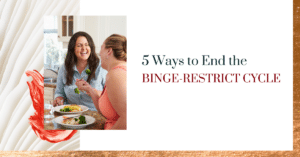
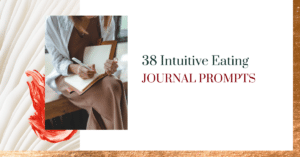
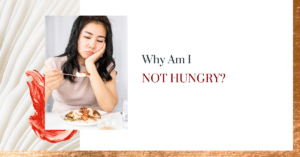
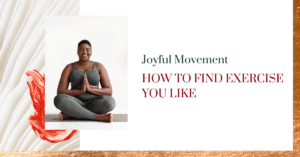
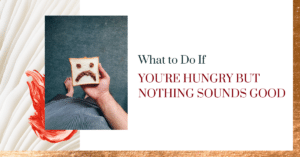
Thanks for this article. I told my mom just this morning that I need to stop weighing myself because I enter into this unconscious self sabotage every week. I’ve definitely recognized this pattern in myself, although I’m oblivious at the time. Just as you stated, I either treat myself and overeat or say screw it if I don’t see movement, or enough movement, on the scale. I had finally gotten under Xlbs last week. Then, just from seeing that progress I stopper working out everyday, ordered out a few times, and indulge in cupcakes more times than I care to type. Needless to say I’ve surpassed that weight again. I look forward to trying this new approach!
You’re welcome Leslee, I’m glad it was helpful 🙂